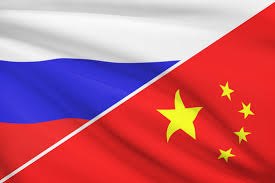(IISS) The Ukraine crisis and the downturn in Russia–West relations that came in its wake have compelled Russia to turn decisively towards China. Deprived of other options, Moscow has found itself in the position of demandeur vis- à-vis Beijing, creating an increasingly imbalanced bilateral relationship. Nonetheless, Russia and China have avoided any turbulence that might have resulted from this asymmetry through mutual accommodation and compromise. Both sides devote significant effort and political capital to managing their bilateral relations effectively; they take a pragmatic, behindthe-scenes approach to resolving disputes and publicly stress the positive elements in the relationship. These ‘relationship management’ efforts have helped to mitigate the potential tensions created by Russia’s relatively weaker position post-2014, leading China not to abuse its stronger position. But the positive dynamic in their relationship is also a natural outgrowth of their shared views on the international order, in particular resistance to US unilateralism and alleged American interference in their political systems. […]
Co-authored by Samuel Charap, John Drennan, and Pierre Noël.
Read More | Survival: Global Politics and Strategy © IISS










